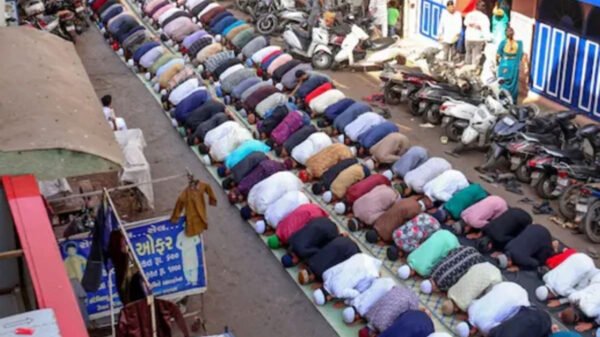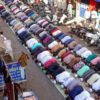A carnival float planned for the India Day Parade in New York City, depicting a Hindu temple built on the site of a 500-year-old mosque in India, has sparked criticism from rights groups. The float is organized by far-right Hindu groups and has been condemned as a “vulgar celebration of anti-Muslim hatred, bigotry, and religious supremacy.”
The float features a depiction of a temple dedicated to the Hindu deity Ram, consecrated earlier this year at a contentious site in Ayodhya, India, believed to be Ram’s birthplace. This site has been a focal point of conflict between Hindus and Muslims for decades. In the early 1990s, a 500-year-old mosque at the location was demolished by Hindu fundamentalist mobs, supported by extremist Hindu lawmakers.
Several US-based organizations, including the Council on American-Islamic Relations (CAIR), the Indian American Muslim Council, and Hindus for Human Rights, have written to New York City Mayor Eric Adams and Governor Kathy Hochul. They argue that the float glorifies the destruction of the mosque and perpetuates anti-Muslim sentiments.
“This float is not just a cultural display but a blatant celebration of anti-Muslim hate and religious bigotry,” the letter states.
The Vishwa Hindu Parishad of America (VHPA), responsible for organizing the float, argues that it represents a significant Hindu place of worship and is intended to honor a key figure in Hindu and Indian identity. The Hindu American Foundation has defended the float as an exercise of free speech.
VHPA, a US branch of India’s Vishwa Hindu Parishad, has been labeled a “militant religious organization” by the CIA’s World Factbook.
The Federation of Indian Associations, which organizes the parade, maintains that the event showcases India’s cultural diversity and includes floats from various communities. Mayor Adams has stated that there is “no room for hate” in the parade and that any float promoting hate should not be included. However, his office has noted that the First Amendment protects the right to free speech, limiting the city’s ability to alter or deny permits based on content.
The mayor’s office also confirmed that Adams does not plan to attend the parade this year, though he has participated in the past.
The controversy surrounding the float has led to calls for action, with activists urging people to voice their opposition to the parade’s organizers.
The historical context involves longstanding claims and counterclaims about the site in Ayodhya. Hindus argue that a temple was destroyed to build the Babri Masjid, which was demolished by zealots in 1992, sparking riots that killed around 2,000 people, primarily Muslims. The Indian Supreme Court awarded the land to Hindus in 2019, though it did not confirm that the mosque was built over a temple.
Archaeological findings from the Indian government have not substantiated the claim that the Babri Masjid was built on a demolished temple. Human rights experts have noted a rise in violence and discrimination against minorities in India under the current Hindu nationalist government, a charge denied by Prime Minister Narendra Modi. India’s population is about 80% Hindu, with approximately 200 million Muslims who have faced attacks from Hindu extremists.










